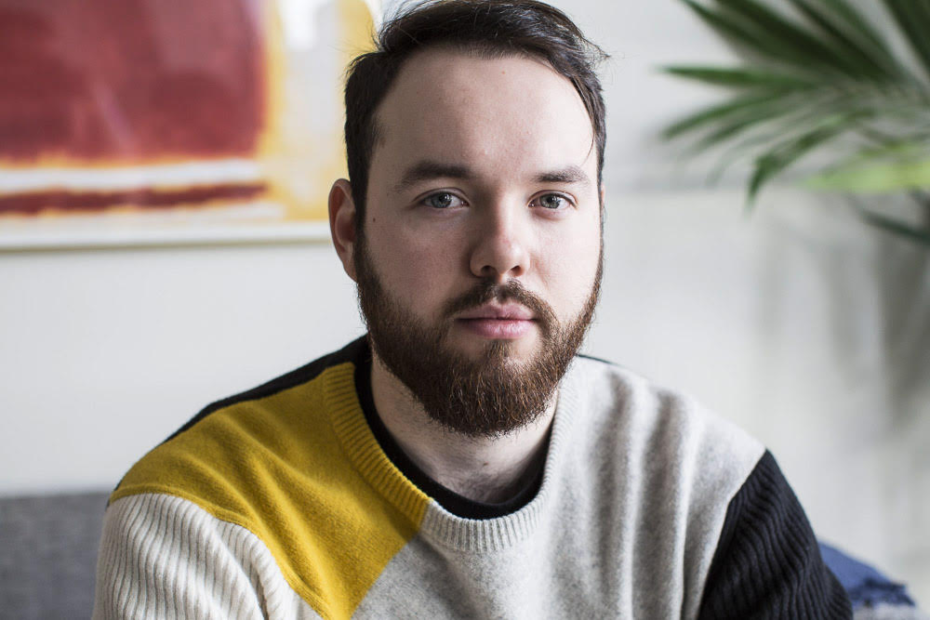
The McGill Dobson Centre for Entrepreneurship has its first unicorn. Sonder, the tech-driven hospitality startup founded by former McGill student Francis Davidson, is now a billion-dollar company. Roughly one percent of seed-funded tech companies in the US became unicorns – a term for privately held startups valued at a billion dollars or more – within 10 years.
Since he left McGill to build his company in San Francisco, Francis Davidson has achieved the kind of mythic success that most entrepreneurs only dream about. “I co-founded Sonder five years ago while attending college in Montreal with no money, no network and no experience,” he shares in a LinkedIn post from July 11. “I can’t believe that today we’re announcing our $223M series D with a valuation exceeding $1 billion dollars.”
The birth of a unicorn
As a 19-year-old student of philosophy and economics at McGill, Francis never imagined he would join the ranks of Silicon Valley’s most elite innovators. The self-proclaimed lover of studying planned to complete a doctorate and become a full-time scholar.
The idea for Sonder, originally named Flatbook, was born out of frustration. In the summer of 2012, Francis tried unsuccessfully to sublet his Montreal apartment so he could work a summer job in Gatineau. His experience sparked an idea for an alternative that would shake up the hospitality industry: a hybrid between a homestay and an upscale hotel.
In 2014, Francis entered his company – then called Flatbook – into the McGill Dobson Cup Startup Competition. Flatbook didn’t progress to the finals, but it caught the attention of Tim Tokarsky, BSc ’99, a Dobson Cup judge and co-founder of the McGill X-1 Accelerator, an intensive summer program for McGill startups. With the help of Tim’s mentorship and investment, Flatbook hatched into Sonder and took flight.
“When I incorporated Sonder from my basement as a student at McGill, I never would have imagined it would become a billion dollar company that aims to transform hospitality,” says Francis.
A different world
Francis joined the Dobson Centre’s “Made at McGill” podcast, hosted by Editor-in-Chief Mo Akif, while visiting McGill last year. “With most things, people take the world as it is for granted,” he reflected. “You have to conceive of a world that is significantly different from what it is right now. I asked myself: What could the world look like if your hotel was awesome? It would be bigger; it would be anywhere you want; it would be well-designed; it would be flexible; it would be way cheaper.”
In a word, it would be Sonder.
Sonder faces inevitable comparisons to Airbnb, but investors recognized something different in its model. Sonder leases, designs, furnishes and maintains higher-end properties with 24/7 on-demand service and a length list of quality standards. Since August 2018, the company’s apartment inventory has grown from 2,200 rentable spaces in 12 cities to over 8,500 spaces in more than 20 cities. With 1,000 employees and a projected $400 million revenue by year’s end – four times the revenue of the previous year Sonder’s meteoric rise shows no signs of slowing down.
“I knew Sonder was big when a friend of mine from Abu Dhabi was visiting Montreal a few months ago,” says Renjie Butalid, Associate Director of the Dobson Centre. “I asked him which hotel he was staying at, and he said, ‘I’m staying at a Sonder – have you heard of it?’” From Renjie’s perspective, “Montreal is a hub for innovation. Sonder’s success demonstrates that it’s possible to build a billion-dollar company out of this city that disrupts global industries.”
Giving back
Francis left McGill before graduating – according to his LinkedIn profile, he has “six credits left. . . maybe in 2025?”– but he continues to invest in the Dobson Centre through mentoring other startup leaders, both in Montreal and San Francisco. Last year in its San Francisco Headquarters, Sonder hosted a Demo Day, a component of the McGill Startup Tour that gives startups from the McGill Dobson Cup and the McGill X-1 Accelerator the opportunity to pitch and connect with successful McGill alumni in entrepreneurial and investment circles.
“I am fortunate to have had mentors who believed and invested in me, including ones I met through McGill, and to now have the chance to give back through mentoring upcoming entrepreneurs and innovators,” says Francis. “I encourage all young entrepreneurs to push the boundaries of what’s possible and never be satisfied with the status quo.”
“Francis has been very generous with his time and knowledge,” says Renjie. “He’s opened up his network, which is really good for the startup ecosystem. At some point, we were connecting Francis to mentors and investors to help him build his business. Now, he’s using the Dobson Centre as an opportunity to give back.”
What’s next for Sonder? “[T]his is just the start, and certainly no time to become complacent,” Francis writes on LinkedIn. “Perhaps with enough focus on sound strategy, team building, and culture, we will have a shot at building an iconic global brand and designing an environment that drives human fulfillment for both travelers and city dwellers. And hopefully, with a bit of luck, we might once again beat the odds.”

I am disappointed that there is no context given in this article about the impact of short-term rentals on housing affordability in Montreal, and perhaps especially the neighborhoods around McGill. For example, recent regulations passed by the city bans short-term rentales in the Plateau except on St Denis and St Laurent, but a simple search of Sonder’s offerings (https://www.sonder.com/destinations/montreal/search?ne=45.525677%2C-73.567495&sw=45.508282%2C-73.589745) shows numerous units on residential streets, whether in violation of the law or grandfathered in, I don’t know. Near my house is a condominium that was built and zoned as a residential construction, but has never had residents, or ever had… Read more »